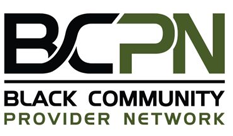MORE FUNDING AND NEXT-WAVE GRANTS ARE EXPECTED SOON
This past summer, the Illinois Office of Broadband launched the Digital Equity Capacity Kickstarter (DECK) Grant Program to sustain existing local initiatives and support other proven and pilot ideas ahead of federal Digital Equity Capacity Grant Program funding expected in late 2024. The initial DECK grant opportunity included $1 million to support an estimated 20 – 25 grantees ahead of historic federal funding to shrink often overlooked aspects of the digital divide.
Two DECK application deadlines inspired over $8 million in grant requests, with applications focusing on one or more of the following categories established in the DECK notice of funding opportunity:
• Outreach and Adoption to facilitate awareness of and enrollment in low-cost broadband programs, such as the Affordable Connectivity Program (ACP). Related activities may include: conducting outreach to community members; supporting enrollment in ACP and other low-cost broadband offerings; and complementing initiatives supported by formal federal ACP Outreach Grant funding.
• Digital Skill Building, Navigation, and Use to provide advice, assistance, and tech support to community members on the use of digital tools and platforms or to coach, train, and guide residents individually or in group settings on how to use their home internet service and devices to meet their day-to-day needs and achieve their goals.
• Community Technology Center Access to establish, administer and expand Community Technology Centers (CTCs) and support basic computer literacy training programs through these centers; and to provide access to computers, internet connectivity, and related training to Illinois communities with demonstrable need.
• Access Expansion Feasibility to identify and advance a community’s broadband access vision and goals; to evaluate market options, consumer demand, and stakeholder alignment; to engage internet service providers and build public sector leadership; and to consider next steps for public-private partnership, grant funding, etc. to increase broadband access and connectivity.
An initial wave of DECK grants has been awarded to the strongest applications received prior to the August 1, 2023, 5pm deadline. These new grantees include:
Association House of Chicago
Brighton Park Neighborhood Council
Center for Changing Lives
The Center: Resources for Teaching & Learning
Chicago Urban League
Coalition for a Better Chinese American Community
Digital Leaders Now
Erie Family Health Centers
Growing Home
Gads Hill Center
McLean County
Metropolitan Family Services
North Lawndale Employment Network
Northwest Side Housing Center
The QUILT Corporation
scaleLit
Southwest Organizing Project (SWOP)
Touch Gift Foundation
The Trep School
Women’s Business Development Center
YMCA of Metropolitan Chicago
Unfunded applications, or those received after the first deadline, either will roll over into an extended notice of funding opportunity or be considered following resubmission. The Office of Broadband will offer direct guidance to all applicants curious about next steps—and all updates will be highlighted in future editions of Illinois Broadband Connections. In the meantime, questions can be directed to broadband@illinois.gov.
Updates on BEAD Initial Proposal — Open for Public Comment Through 5pm October 31
On September 29, the Illinois Office of Broadband posted for public comment two components (or volumes) of its Initial Proposal for use of federal Broadband Equity, Access, and Deployment (BEAD) Program funds.
The Initial Proposal will establish how Illinois runs a challenge process to the federal broadband map (Volume 1) and then administers the subsequent BEAD subgrantee selection process constituting Round 4 of the Connect Illinois Broadband Grant Program (Volume 2).
Once NTIA approves Volume 1 of the Initial Proposal, the Illinois Broadband Office will launch its challenge process, giving Illinoisans everywhere—through participating local governments, nonprofits, and internet service providers—an opportunity to submit corrections to the latest federal broadband availability map indicating whether a location or community anchor institution has limited or no internet service. The updated map will determine which locations are eligible for Illinois’ BEAD funding.
To make a public comment on Community Anchor Institutions (CAIs):
• Click here for the current Excel document list of Illinois CAIs.
• If you believe your organization should be listed and it is not, click here to submit a public comment by October 31 at 5 pm CT.
– Under Program Selection, choose Volume I.
– In your public comment submission, describe why your organization fits the definition of a CAI, as described on pages 11-16 in this document. The State will make a final determination.
– (Later on, you’ll have the opportunity to make sure each CAI’s speed is accurately depicted on the map. For now, it’s just important to make sure all qualifying CAIs are on the list.)
For general remarks on Volume I, including suggestions on language and clarity or if you feel something is missing or have general feedback, you can submit a public comment using this form by October 31 at 5 pm CT. (Select Volume I under Program Selection.)
Volume II goes into more detail on the sub-grantee process. You can review this document and submit a public comment by Oct. 31. (Select Volume II under Program Selection.)
BEAD Challenge Speed Testing
You can help the Illinois Office of Broadband get the maps right to determine eligible locations for BEAD funding. If you are a local government/non-profit that is actively engaged in broadband infrastructure planning and have identified areas in your community where the FCC broadband availability data does not align with lived experience, participate in the BEAD Challenge Process (anticipated to start in January 2024).
The Initial Proposal Volume 1 (see p 26-30) lays out the different challenge types—including challenges based on speeds and latency standards—that could make your location eligible for funding. The Initial Proposal Volume 1 (p 32-34) lays out the specific Speed Testing requirements for the BEAD Challenge.
Residents can take multiple tests at their home per the Initial Proposal requirements and submit results to their local governments or non-profits to be entered into the BEAD Challenge.
Practice taking a speed test at speed.measurementlab.net. Click “I agree” and “Begin” to start.
Alternatively, a local government or non-profit can partner with the University of Chicago’s Internet Equity Initiative to participate in an effort that measures the performance of home internet connections to better understand internet performance and access. This will require community coordination. Volunteer households can install a Netrics device in their home to take the speed tests for a 1–2-week period. UChicago will then package the results per the Initial Proposal Volume 1 requirements and share them with the participating local governments and non-profits to submit the final challenges to the state.
If you are interested in partnering with the University of Chicago for the BEAD Challenge process, please fill out the interest form by November 15, 2023. This will help assess the need for speed testing and prioritize device deployment efforts.
The Local Governments-BEAD Challenge Process webinar shared more details about the University of Chicago Internet Equity Initiative. Please feel free to reach out to Shubhika Agarwal (sa38@uillinois.edu) if you have any questions.
Broadband Breakthrough—Your Community’s Pathway to Better Broadband!
Broadband Breakthrough puts your community leadership at the center of your community’s broadband future. Federal and state broadband grant programs require strong community input. Is your community prepared to take advantage of the coming broadband funding? Or are you just hoping for the best? Broadband Breakthrough supports your leadership team with quality data and knowledge and enhances your ability to pursue and select the right broadband partners and technology that will influence your community’s future over the coming decades. This is a sixteen-week guided self-help program. Each community should have a team of at least eight people ready to work on the program.
Learn everything that you need to know from the Benton Institute for Broadband & Society team and project partners like Illinois Extension, the Illinois Broadband Lab, and Illinois State University. Even better, hear success stories from recent Broadband Breakthrough participants about the enhanced broadband situations in their communities. Broadband providers are especially interested in working with communities that are knowledgeable and prepared to be good partners as they pursue expanded broadband territories. Broadband Breakthrough will increase your capacity to be a smart and supportive community partner.
The Benton Institute for Broadband & Society is immediately seeking two additional communities. We are also judging interest for a spring cohort of five more participants. Most of our communities are defined as a single county, but we are open to multiple counties working together or a community based on school district boundaries. With funding provided by the Illinois Soybean Association, there is a priority on rural Illinois, but we know that most Illinois counties have significant agricultural activities.
The application is easy with the primary requirement being a list of team members. We will review and approve applications as we receive them with the first two joining our current cohort. If you want to get a jump on your application, you can find it here:

